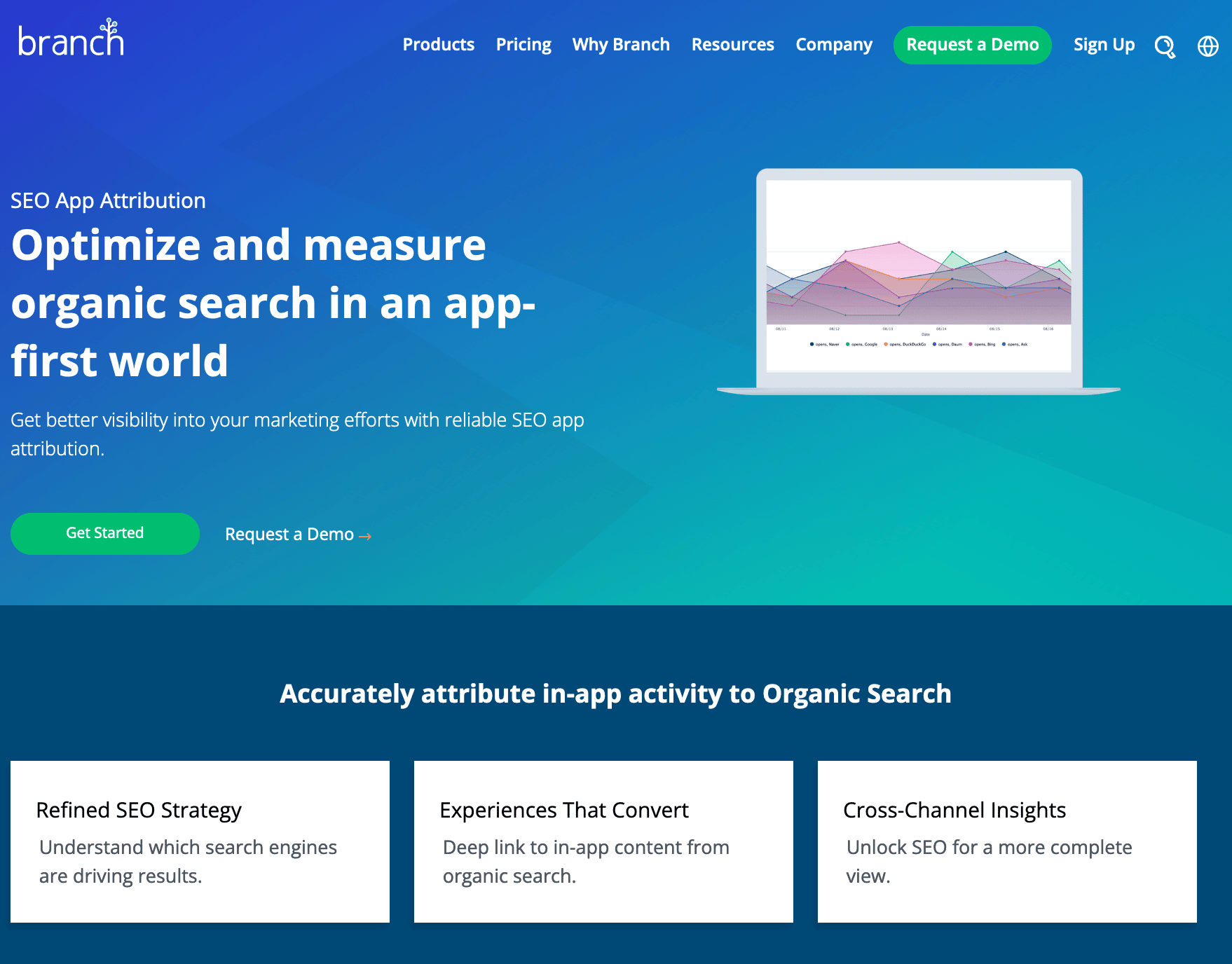Branch has released an SEO App Attribution measurement that allows you to measure app events that originated from a search engine result. This has long been an issue with the measurement of the ROI of SEO (search engine optimization) campaigns, in that it’s been impossible, traditionally, to measure events in apps that originate from search engine results pages.
Branch’s SEO App Attribution tracks app activity driven by search engines such as Google, Yahoo!, Microsoft Bing, and DuckDuckGo. Their solution provides reliable attribution in a channel that is traditionally difficult to measure. It protects against mis-attribution, wasteful spend, and under-investment in SEO. Branch’s SEO App Attribution allows agencies and brands to better understand the performance of SEO channels. It also allows brands and agencies to better understand the performance of SEO efforts, allowing them to make more informed strategic decisions across all marketing channels.
According to Branch, Organic Search is responsible for more than 20% of commerce traffic generation on average so is a major source of visits and revenue which we would be missing.
How does SEO App Attribution work?
Branch explains in their help docs about how their SEO App Attribution works:
- User clicks on a link from a search engine (ex. Google, Yahoo, etc.).
The Links/URLs are indexed through the search engine. - Branch collects specific signals on app open.
The Branch SDK simulates a click. - Branch attributes app users to the organic search results.
“Mobile SEO has historically had many blind spots, specifically around the app, but a recent internal study showed that nearly a fifth of all owned and earned app events are actually originating from organic search,” said Alex Austin, CEO and Co-founder, Branch. “Our new solution gives unprecedented visibility into the flow of traffic from search into the app, shining a light in the dark. It will allow brands to optimize mobile search with accurate attribution on who ends up in the app and what actions they take, improving decision-making and giving marketers their due, all without needing additional developer resources or impacting search rankings.”

